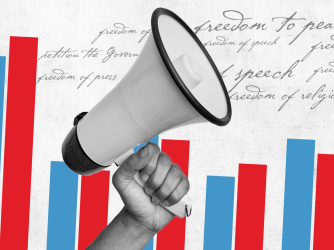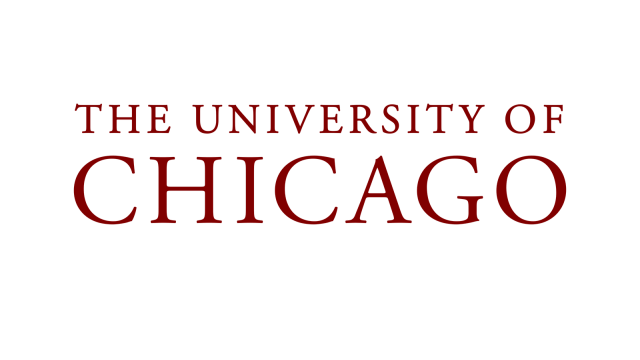Table of Contents
Always room for improvement: FIRE’s top-ranked school drops the ball by denying TPUSA chapter recognition
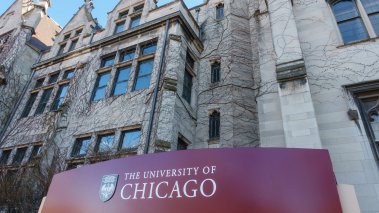
Jannis Tobias Werner / Shutterstock.com
The University of Chicago, known for its model free expression policy and for being 2022’s top-ranked college for free speech, uncharacteristically violated students’ associational rights earlier this year by denying recognition to a chapter of the conservative group Turning Point USA.
In December, UChicago’s TPUSA chapter applied for official recognition as a registered student organization. The reason for its denial, explained RSO committee member Jiayi Yue, is that the committee could not “see a sufficient difference between [TPUSA] and the existing College Republican RSO.”
The committee unilaterally determined there was not a “pressing need” for the group and explained that TPUSA lacked the requisite number of members and events to show a sufficiently “compelling sign of the longevity and engagement of an organization.”
UChicago’s track record is better than most when it comes to fostering and upholding its students’ expressive rights. But that doesn’t mean it’s perfect, and it is certainly not above criticism.
TPUSA appealed the committee’s denial to UChicago’s administration. But in January, the administration denied the appeal.
Recognition as an RSO is crucial for groups to be afforded their full rights and privileges. Groups without official recognition can be denied a wide range of resources, including funding, discounted room reservations, and the ability to publicize events on campus.
FIRE wrote UChicago on April 28 to remind the school of its laudable commitment to free expression and to urge it to uphold those values with respect to TPUSA. We also explained that the committee’s denial of TPUSA appears to be viewpoint discriminatory:
By denying TPUSA based on the Committee on Recognized Student Organizations’ interpretation of the group’s purpose, UChicago contravened the university’s commitments and hindered the marketplace of ideas the university is obligated to protect. The double standard applied to TPUSA also suggests UChicago rejected the group’s application for viewpoint-based reasons, which would represent a significant violation of student expressive rights. When a university “requires its students to pay fees to support the extracurricular speech of other students, all in the interest of open discussion, it may not prefer some viewpoints to others.
UChicago officials responded to FIRE, defending the university’s decision and arguing it can deny groups because of their similarity to other groups. The university argued there are other ways to request funds, so students do not need their groups to be recognized.
FIRE disagrees that this is permissible.
To be clear: Viewpoint neutrality in recognizing student groups is the same viewpoint neutrality required in public fora. According to the Supreme Court in Rosenberger v. Rector, universities “must abstain from regulating speech when the specific motivating ideology or the opinion or perspective of the speaker is the rationale for the restriction.”
UChicago does not have to discriminate against certain views and perceive them as unfavorable to render a recognition denial impermissible. That the university determines what that viewpoint means and takes the viewpoint into consideration is enough to violate students’ expressive and associational rights. That is impermissible at an institution committed to free expression.
UChicago’s track record is better than most when it comes to fostering and upholding its students’ expressive rights. But that doesn’t mean it’s perfect, and it is certainly not above criticism.
We urge UChicago to immediately rectify this violation and grant TPUSA recognition as a registered student organization.
FIRE defends the rights of students and faculty members — no matter their views — at public and private universities and colleges in the United States. If you are a student or a faculty member facing investigation or punishment for your speech, submit your case to FIRE today. If you’re a faculty member at a public college or university, call the Faculty Legal Defense Fund 24-hour hotline at 254-500-FLDF (3533). If you’re a college journalist facing censorship or a media law question, call the Student Press Freedom Initiative 24-hour hotline at 717-734-SPFI (7734).
Recent Articles
FIRE’s award-winning Newsdesk covers the free speech news you need to stay informed.
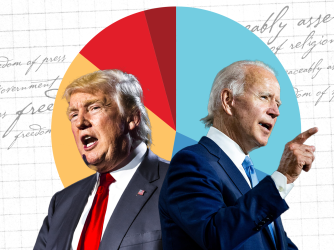
New FIRE poll: Americans equally skeptical Biden or Trump will protect First Amendment rights
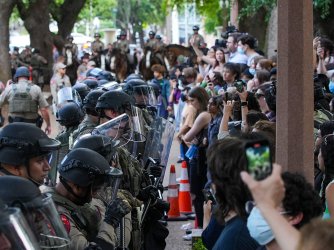
Here’s what student journalists need to know about covering campus protests

